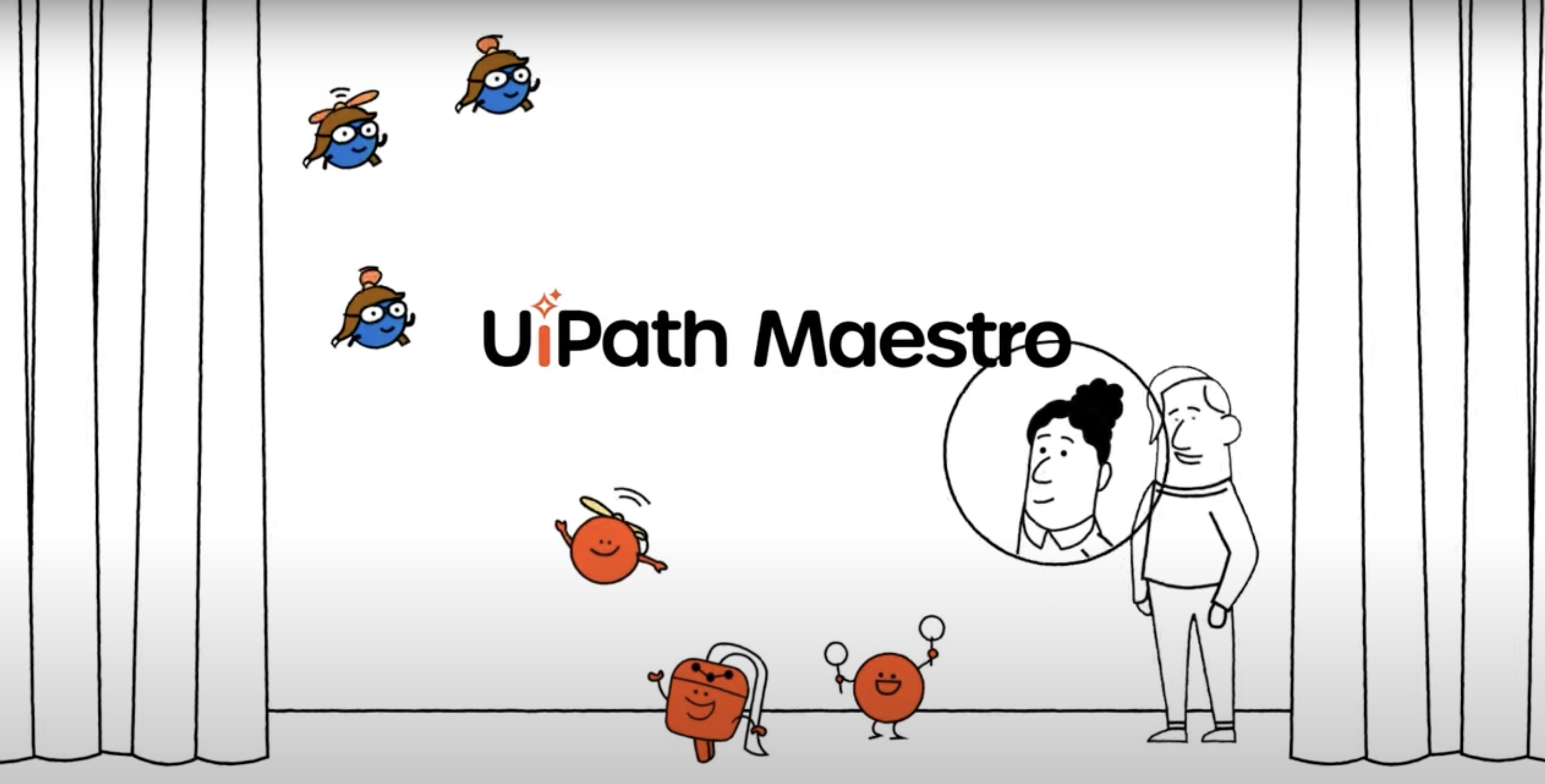From pilot to production: what customers are telling us about agentic automation
From pilot to production: what customers are telling us about agentic automation
Share at:

Agentic automation is moving fast
Agentic automation is no longer theory, it’s happening now. Business leaders across industries are moving from pilots to production, orchestrating AI agents, robots, and people to deliver measurable outcomes. The mandate is clear: move faster, prove value, and build trust.
That’s exactly what we heard in recent UiPath Customer Advisory Board (CAB) meetings, where executives from some of the world’s most innovative companies in healthcare, financial services, manufacturing, retail, and technology shared how they’re scaling agentic automation.
Those conversations revealed a clear trend: agentic automation is accelerating. What started as pilots is rapidly moving into production, with leaders eager to connect automation investments to measurable outcomes. Here’s what we heard—and how we’re responding.
From pilot to production: the shift is on
In our Americas CAB, customers told us they are quickly moving from piloting to implementing agentic automation in business workflows that require more efficiency, speed, and accuracy. They’re combining systems, tools, models, and teams to handle processes that require reasoning, rules-based actions, and human-in-the-loop validations.
In London, EMEA CAB members echoed the urgency: show value, move faster, empower teams.
Whether enhancing existing automations or building new ones, the shared priority is connecting automation to real business outcomes. They are looking to low-code tools to enable employees across the organization (citizen developers) to build and scale automation regardless of technical expertise.
Why leaders can’t afford to wait
According to MIT’s “The GenAI Divide: State of AI in Business 2025,” only 5% of integrated AI pilots are delivering millions in value, (while most are stuck, showing no impact on profit and loss). Our CAB members confirmed this. After years of automating isolated tasks, the mandate now is to transform end-to-end processes—bringing structured and unstructured work together and tying outcomes to tangible business value.
Customers told us they need a platform that adapts to their workflows—orchestrating AI agents, robots, and people in real time, dynamically routing tasks as conditions evolve. They need automation that manages complexity and supercharges rule-based task automation managed by robotic process automation (RPA). This is where our commitment to end-to-end orchestration becomes critical—connecting systems, tools, models, and teams across the entire process landscape.
It’s not just about making individual steps faster. It’s about making the entire process work better: a claim resolved correctly, an order fulfilled on time, a contract reviewed for compliance.
Related read: An OS for the enterprise: AI that orchestrates everything
What success looks like
Many customers are already defining success for agentic automation with metrics that show impact on decision-heavy, cross-functional workflows—where the stakes are revenue protection, compliance risk, and customer experience. They are tracking metrics such as faster time to value for customers leading to improved revenue capture, cycle times, SLA compliance, audit readiness, NPS improvements, and revenue leakage prevention. Others are tracking developer readiness and adoption across departments, aligning with a new Board-level priority: make AI a competitive advantage.
Trust will decide the winners in AI
Across industries, customers made one point crystal clear: trust in a vendor is critical—and directly impacts success. MIT’s research confirmed this, showing that 90% of executives rank “a vendor we trust” as their top priority when choosing AI solutions.
As one customer put it: “Consistency in customer interactions is non-negotiable.”
Customers indicated that trust-oriented features such as transparent reasoning, audit trails, granular access controls, and continuous feedback loops, are critical for moving from exploration to transformation. This is why we've built trust by design into our platform—with governance, control, and transparency as foundational elements, not afterthoughts.
The MIT study also revealed that while many organizations are experimenting with internal GenAI development, those that work with trusted vendors are twice as likely to succeed. Our CAB members echoed this: they want partners, not lock-ins. They need open, interoperable tools that fit their existing, long-running workflows, not systems that require adjusting business processes to fit technology.
Our universal integration approach—working with any agent, model, system, application, or platform—positions UiPath as the open and flexible orchestration layer, giving customers the flexibility they demand.
Why customers choose UiPath
Customers in CABs ranked UiPath end-to-end process orchestration as our top differentiator. They highlighted how UiPath Maestro™ orchestrates agents, robots, people, and systems—inside and outside UiPath—ensuring work doesn’t get stuck in silos.

Trust extends beyond product features to the people behind the platform. Our experience with traditional RPA laid the foundation for the agentic era, giving us unique insights and capabilities. For example, our experience developing worldclass unattended and attended robot capabilities allows us to apply the right balance of AI agent autonomy with oversight—what we call controlled agency. This approach delivers the accuracy, reliability, and enterprise trust that mission-critical processes demand.
UiPath brings together Product, Customer Success, Sales, Industry Development, Pre-Sales Engineering, Professional Services, and Marketing to help customers move fast and build capabilities for the long term.
We support that in ways that matter most to customers:
Practical know-how: A Practitioner’s Guide to Agentic Automation and on-demand training through UiPath Academy
Real-world examples: demos and customer stories that show measurable outcomes
Faster scaling: Fast Track partners enabled through immersive training, plus access to Innovation Labs and Briefing Centers worldwide
The path forward
Agentic automation is no longer theory. The mandate is clear: connect agentic automation investments to significant business value.
Customers are building, scaling, and starting to transform—and they want partners who understand the urgency, risks, and opportunities. Our approach delivers real AI value through the UiPath Platform™ for agentic automation, built specifically for ROI.
We’re listening and we’re building with you. Because in agentic automation—as in business—trust is the ultimate currency.
Want to know more? Join us at UiPath FUSION to see how early adopters are turning the promise of agentic AI into measurable business value. It’s where agentic AI meets ROI.
Or explore our events around the world where customers are sharing their agentic success stories.
Source cited: MIT. The GenAI Divide: State of AI in Business, 2025. MIT Center for Information Systems Research, 2025.
Global VP of Customer and Partner Marketing, UiPath
Get articles from automation experts in your inbox
SubscribeGet articles from automation experts in your inbox
Sign up today and we'll email you the newest articles every week.
Thank you for subscribing!
Thank you for subscribing! Each week, we'll send the best automation blog posts straight to your inbox.



